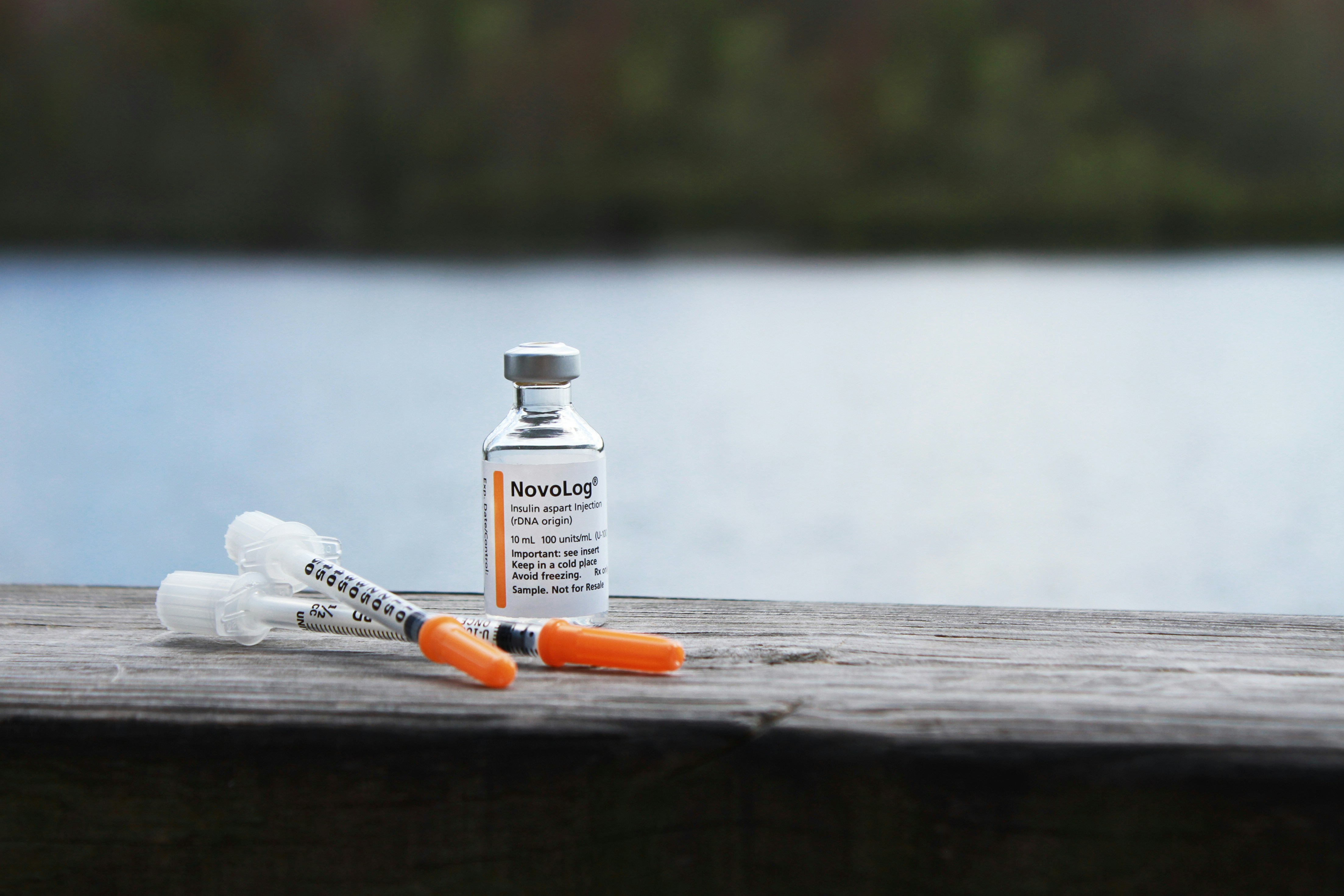Insulin Resistance: What Is It & How to Manage It
5
min read
May 1, 2025
Insulin resistance occurs when your body’s cells become less responsive to insulin, leading to higher blood sugar and potential health issues like type 2 diabetes. Learn how to reverse insulin resistance naturally with an insulin resistance diet, exercise, and lifestyle changes to improve your insulin sensitivity and overall health.
Understanding Insulin Resistance
Insulin resistance is becoming more common, but many people don’t realize they have it. It’s a condition that can sneak up on you, affecting how your body processes sugar (glucose) and how much insulin it needs to produce. Simply put, insulin resistance happens when your cells stop responding to insulin properly. This means your body needs to produce more insulin to manage your blood sugar levels, and over time, it can cause a host of health issues, including diabetes.
In this article, we’ll take a look at insulin resistance: what it is, how to recognize it, and how you can take control of your health by making a few changes to your lifestyle. Whether you’re just learning about insulin resistance or you suspect you may have it, keep reading to find out what you can do to improve your insulin sensitivity and overall health.
What Is Insulin Resistance?
To understand insulin resistance, it helps to know what insulin does in your body. Insulin is a hormone produced by the pancreas that helps regulate blood sugar. After you eat, your body breaks down carbohydrates into glucose (sugar), which enters your bloodstream. Insulin then helps move that glucose into your cells, where it’s used for energy. But when you have insulin resistance, your cells become less responsive to insulin, so your body has to make more and more of it to keep blood sugar levels under control. This process can lead to higher insulin levels in your blood, and over time, it can cause your pancreas to wear out, leading to higher blood sugar levels and eventually type 2 diabetes.
How Do You Know If You Have Insulin Resistance?
The tricky thing about insulin resistance is that it often doesn’t have any obvious symptoms in the beginning. But over time, it can show up in ways you might not expect. Here are some signs to watch out for:
Feeling tired or sluggish: Especially after meals, if you’re feeling drained and like you can’t shake the fatigue, it could be a sign.
Difficulty losing weight: Even if you’re sticking to a healthy diet and exercise routine, insulin resistance can make it harder to shed those extra pounds.
Increased hunger and cravings: Insulin resistance often leads to blood sugar fluctuations, which can make you feel hungrier or cause sugar cravings.
Brain fog: If you find it hard to concentrate or feel mentally fuzzy, it could be due to blood sugar imbalance.
Skin changes: Dark patches of skin (especially around the neck, armpits, or groin) can be a sign of insulin resistance.
Elevated blood sugar levels: If you’ve had blood tests and noticed that your blood sugar is consistently high, it could indicate insulin resistance.
If you recognize any of these symptoms, it might be a good idea to talk to your doctor about an insulin resistance test.
Insulin Resistance Tests: How to Measure Insulin Sensitivity
If you’re wondering whether you have insulin resistance, there are a few tests your doctor can perform to get a clearer picture. These include:
Fasting insulin test: This checks your insulin levels after you fast overnight. Higher levels could indicate insulin resistance.
Oral glucose tolerance test (OGTT): This test measures how your body handles sugar over a few hours. It can help identify how well your insulin is working.
HOMA-IR test: This test uses your fasting insulin and blood sugar levels to calculate your insulin sensitivity.
Regular testing can help your doctor figure out if you’re at risk and guide you toward the best treatment plan.
How to Reverse Insulin Resistance: Simple Steps to Take Control
The good news is that insulin resistance is often reversible. By making some adjustments to your diet, exercise routine, and stress management, you can improve your insulin sensitivity and overall health. Let’s look at some practical ways to manage and even reverse insulin resistance.
Make Smart Food Choices with an Insulin Resistance Diet
What you eat plays a big role in how your body responds to insulin. The right foods can help improve your insulin sensitivity, while the wrong ones can make things worse. Here are some tips to help you craft an insulin resistance diet:
Eat whole, unprocessed foods: Fill your plate with plenty of vegetables, fruits, lean proteins, and healthy fats. These foods help keep blood sugar steady and give you lasting energy.
Choose complex carbs: Whole grains, legumes, and starchy vegetables are better than refined carbs like white bread and pasta. They digest slowly, preventing big spikes in blood sugar.
Watch portion sizes: Even healthy foods can cause problems if you eat too much. Pay attention to how much you’re eating, especially when it comes to carbs.
Incorporate healthy fats: Avocados, olive oil, and nuts are great sources of healthy fats that support insulin sensitivity.
Limit sugary foods: Processed foods and sugary snacks can cause your blood sugar to spike, leading to more insulin being produced.
It’s all about choosing the foods that help stabilize your blood sugar and improve your body’s ability to respond to insulin.
Exercise Regularly
Exercise is one of the best ways to improve insulin sensitivity. When you’re physically active, your muscles become better at using glucose for energy, which helps lower insulin levels. Aim for at least 30 minutes of moderate-intensity exercise most days of the week. Both aerobic exercises (like walking, running, or swimming) and strength training(such as weightlifting or bodyweight exercises) can help improve how your body processes insulin.
Maintain a Healthy Weight
Being overweight is a major risk factor for insulin resistance. But the good news is that even modest weight loss can have a big impact on insulin sensitivity. If you’re carrying extra weight, aim for a gradual, sustainable weight loss of about 5-10% of your body weight. This can help reduce your insulin resistance and improve overall metabolic health.
Get Enough Sleep and Manage Stress
Quality sleep and managing stress are often overlooked but are crucial for improving insulin resistance. Poor sleep and chronic stress can both affect how well your body handles insulin. Here’s what you can do:
Get 7-9 hours of sleep: Sleep is when your body does a lot of important metabolic work, including regulating insulin. Try to stick to a regular sleep schedule and avoid screens before bed.
Manage stress: Stress raises cortisol levels, which can make insulin resistance worse. Stress-management techniques like meditation, deep breathing, or yoga can help lower cortisol and improve your insulin sensitivity.
Is Insulin Resistance the Same as Diabetes?
No, insulin resistance isn’t the same as diabetes, but it’s closely related. Insulin resistance often leads to prediabetes and can eventually progress to type 2 diabetes if not managed properly. However, with the right lifestyle changes, you can improve your insulin sensitivity and prevent the progression to diabetes. Insulin resistance is a serious but manageable condition. By recognizing the signs early, getting the right tests, and making changes to your diet and lifestyle, you can take charge of your health. How to reverse insulin resistance naturally often involves a combination of a healthy diet, regular exercise, and good stress and sleep management.
Conclusion
Remember, small changes can lead to big improvements over time, so don’t get discouraged if it takes a while to see results. The most important thing is to stay consistent and patient with your efforts.
If you suspect you might have insulin resistance, it’s a good idea to speak with your healthcare provider. They can help guide you through the process and monitor your progress. By making proactive changes today, you’ll set yourself up for a healthier tomorrow!








